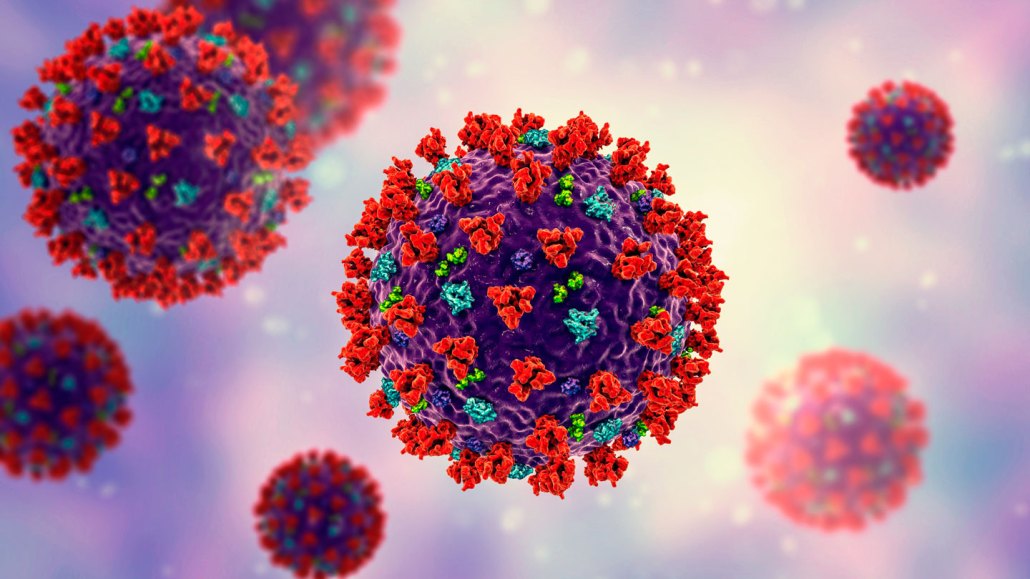Health risks can persist at least 2 years after COVID-19, new data suggest
U.S. veterans’ medical records suggest mild infections still can lead to lingering effects

The risk of dealing with a host of other medical issues may persist for at least two years after getting COVID-19, a new study of U.S. veterans suggests.
KATERYNA KON/SCIENCE PHOTO LIBRARY/Getty Images Plus
- More than 2 years ago
The risk of experiencing such health issues as diabetes, fatigue or blood clots can persist for at least two years after a coronavirus infection, a new study suggests.
That finding is based on the health records of about 140,000 U.S. veterans infected with SARS-CoV-2 early in the pandemic, compared with nearly 6 million more who did not test positive for the virus that causes COVID-19. Researchers used veterans’ new diagnoses of health issues, lab results and prescription records to identify health problems that emerged starting a month after getting COVID-19.
Even two years after their infections, people who had COVID-19 were at higher risk for many health issues — ranging from heart disease to gastrointestinal problems, the team reports August 21 in Nature Medicine.
Patients who were hospitalized during their initial COVID-19 cases were more likely to experience these health problems, the team found. But those with milder initial infections were still at higher risk for about one-third of the medical issues that the scientists analyzed, compared with people who didn’t test positive. As most COVID-19 cases are milder, this group represents a greater burden to the health care system, says Ziyad Al-Aly, a clinical epidemiologist at the Veterans Affairs Saint Louis Health Care System.
The most common problems align with common long COVID symptoms identified in other studies, such as fatigue, memory problems, loss of smell, blood clots, metabolic issues and gastrointestinal problems. For example, initially hospitalized patients were about 1.88 times as likely to experience acute gastritis, or stomach inflammation as those with no record of COVID-19 at two years after infection; non-hospitalized patients had a risk factor of 1.44 times.
“Long COVID represents a significant burden of disease and disability,” says Al-Aly, who is also affiliated with Washington University in Saint Louis. A coronavirus infection can “result in heart disease, result in brain problems,” and many other long-term risks which scientists are just beginning to understand.
While the patients in the study were predominantly male and older, the findings align with Upinder Singh’s experience seeing patients at Stanford University’s long COVID clinic. “This is an important set of data,” she says.
The findings also match patients’ experiences with persistent symptoms, says Lisa McCorkell, a long COVID patient and researcher at the Patient-Led Research Collaborative. In particular, she noted that autonomic nervous system issues, which can lead to symptoms like pain and fatigue, persisted for both groups of patients in the study and even increased over time for the non-hospitalized group. Many people with long COVID have also been diagnosed with this condition.
Al-Aly and colleagues examined 77 medical problems that may arise after an acute COVID-19 case. Two years after infection, COVID-19 patients who hadn’t been hospitalized for severe symptoms early on – about 120,000 of those in the study — remained at higher risk for 24 of the 77 issues, compared with people who hadn’t tested positive. Those who had been hospitalized were at higher risk for 50 of the 77 issues, suggesting that worse symptoms in the acute phase can contribute to a greater chance of long COVID.
Initially hospitalized patients also had higher risks of going to the hospital again or dying in the two years following their COVID-19 infections, the researchers found. These risks tapered off for people who had milder cases early on, as did some specific health risks, including low blood oxygen levels and memory problems.
Overall, Al-Aly and colleagues found that for every 1,000 people infected with the coronavirus, a cumulative 150 years of healthy life is lost due to these patient’s struggles with persistent symptoms. This finding demonstrates “how destructive long COVID can be,” McCorkell says. Other studies, such as the U.S. Census’ Household Pulse Survey, similarly found that long COVID can severely restrict day-to-day life for many patients.
The study does have limitations. Because it used electronic health records, only information available to the medical system can be analyzed (SN: 11/28/22). The researchers couldn’t assess some common long COVID symptoms that are not typically captured by doctor’s visits, such as post-exertional malaise (PEM). “When it comes to a symptom clinicians have never heard of before, like PEM, [health records don’t capture] the full picture,” says Jaime Seltzer, an expert on myalgic encephalomyelitis/chronic fatigue syndrome who heads scientific and medical outreach with the advocacy group #MEAction. This chronic condition shares many symptoms with long COVID.
Seltzer also notes that the study may be skewed by its veteran population. About 90 percent of veteran records included were from men, while long COVID and other similar chronic conditions are more common among women. Some health issues that are more common for women with long COVID, such as long-term neurological and endocrine symptoms, may be underrepresented, she says.
The study also didn’t include people who may have been infected by SARS-CoV-2 but failed to get a positive test result in early 2020, when tests were not widely available. In fact, many of the people included as controls could have “actually had COVID-19,” Singh says.
Despite the caveats, with COVID-19 transmission rising again in recent weeks, the study offers a reminder that “it’s still worth it to protect yourself,” Al-Aly says (SN: 8/21/23). Even a mild infection could lead to health problems in the months or years that follow.







